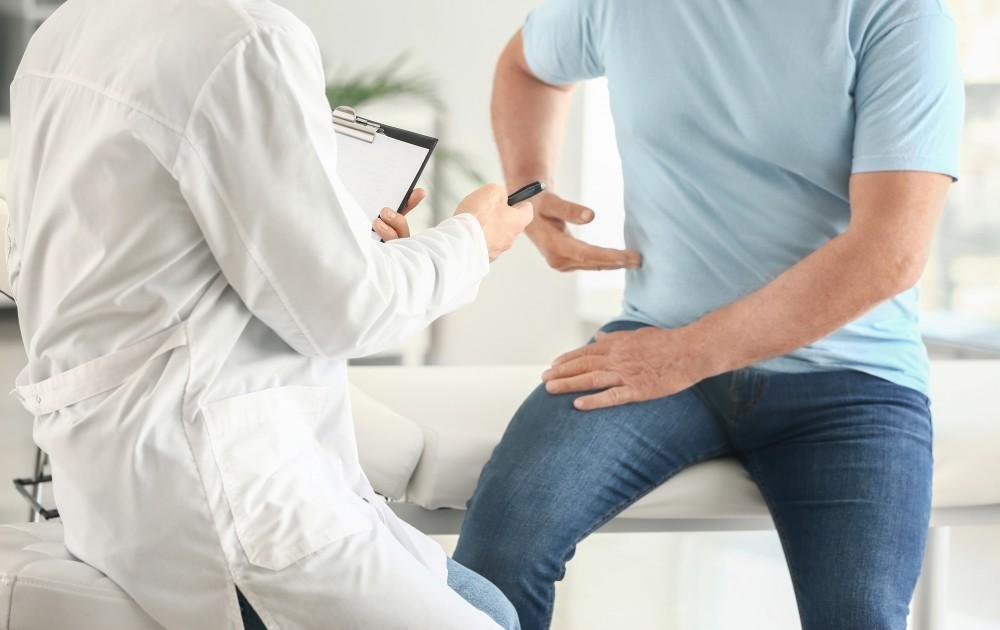Living with a rare genital pain disorder can feel incredibly isolating, confusing, and frustrating. Unlike more commonly discussed health issues, these conditions—such as vulvodynia, pudendal neuralgia, or chronic pelvic pain—are often misunderstood, misdiagnosed, or even dismissed altogether. Because of the sensitive nature of genital pain, many people also suffer in silence, unsure where to turn or who to trust.
Finding a specialist who not only takes your symptoms seriously but also has experience with your specific condition can make all the difference. However, the path to proper diagnosis and treatment is often anything but straightforward.
Recommended: Maintaining Intimacy When Intercourse Is Painful
In this guide, we’ll walk you through how to identify the right healthcare professional, what steps to take before and during your search, and how to advocate for the care you deserve—because you shouldn’t have to suffer in silence or settle for less than real answers.
What Is a Rare Genital Pain Disorder?

A rare genital pain disorder is a medical condition that causes chronic or recurring pain in the genital area—pain that cannot be easily explained by infections, injuries, or common gynecological or urological issues. These disorders are often underdiagnosed because they fall outside the scope of routine care and aren’t always well understood by general practitioners.
Unlike temporary discomfort or irritation, the pain associated with these conditions can be persistent, severe, and life-altering—affecting everything from physical movement to sexual activity and emotional well-being.
Recommended: How to Talk to Your Partner About a Difficult Sexual Health Issue
Examples of Rare Genital Pain Disorders Include:
- Pudendal Neuralgia – Nerve-related pain along the pudendal nerve, causing sharp, burning, or stabbing sensations in the pelvis, anus, or genitals.
- Vulvodynia – Chronic pain or discomfort around the opening of the vagina (vulva) with no clear cause.
- Penile Dysesthesia – Unexplained pain, burning, or abnormal sensations in the penis, often linked to nerve dysfunction.
- Persistent Genital Arousal Disorder (PGAD) – A distressing and constant feeling of genital arousal that is not linked to desire.
- Chronic Prostatitis/Chronic Pelvic Pain Syndrome (CP/CPPS) – Persistent pain in the pelvic or perineal area in men, often with urinary or sexual symptoms.
Why Are These Conditions Considered “Rare”?
They are termed rare not necessarily because they affect only a few people, but because they’re rarely diagnosed correctly. Many individuals go years without an accurate diagnosis or are told their pain is psychological, hormonal, or “just part of life.”
How to Track and Document Your Symptoms Effectively
When dealing with a rare genital pain disorder, your story matters—and your symptoms tell that story. Because these conditions are often misunderstood or overlooked, tracking your symptoms is one of the most important steps you can take toward getting the right diagnosis and care. Detailed records give doctors a clearer picture of what you’re experiencing and help them avoid jumping to conclusions or misdiagnosing your pain.
What Should You Track?
Here are the key things to document regularly—daily if possible:
- Pain Location
- Be specific: Is it internal, external, left, right, or radiating?
- Use body diagrams if needed.
- Pain Description
- Use words like burning, aching, sharp, tingling, or pressure.
- This helps doctors determine if the pain may be nerve-related or muscular.
- Pain Intensity
- Rate it on a scale of 0 to 10.
- Note if the pain stays steady or comes and goes.
- Onset and Duration
- When does the pain start? How long does it last?
- Possible Triggers
- Include activities (e.g., sitting, walking, sex), foods, stress levels, or clothing types.
- Relief Methods
- What have you tried to relieve the pain—heat pads, medications, position changes, rest?
- Note what worked and what didn’t.
- Menstrual Cycle (if applicable)
- Track your cycle and any symptom changes around ovulation or menstruation.
- Emotional Impact
- Include mood, anxiety, or fatigue. Chronic pain can take a toll on your mental health too.
Recommended: Supporting a Partner with a Debilitating Sexual Condition
Which Medical Specialists Treat Rare Genital Pain Disorders?
Finding the right medical specialist is one of the most crucial—and often most frustrating—steps in getting help for a rare genital pain disorder. Because these conditions can involve nerves, muscles, hormones, skin, and psychological factors, you may need to consult more than one type of doctor to get a complete diagnosis and effective treatment plan.
Below are the main specialists who treat rare genital pain disorders, along with what they do and when you might need them:
1. Gynecologists (GYN)
Best for: Women or anyone with a vulva/vagina
Gynecologists often serve as the first point of contact for genital pain. Some are trained in diagnosing and managing complex conditions like vulvodynia, vaginismus, or hormonal pain. Look for one who specializes in chronic pelvic pain or vulvar disorders—not just routine care.
2. Urologists

Best for: Men or anyone with a penis/testicles
Urologists diagnose and treat pain in the urinary tract and male reproductive system, including conditions like chronic prostatitis, penile dysesthesia, or testicular pain. Ask if the doctor is familiar with nerve-related or chronic genital pain.
3. Neurologists
Best for: Nerve-related pain (like pudendal neuralgia)
Some genital pain disorders stem from nerve compression, injury, or dysfunction. A neurologist can help identify if your pain is due to neuropathy, spinal issues, or other neurological causes, and may order imaging tests or nerve blocks.
4. Pelvic Floor Physical Therapists
Best for: Muscle-related pain, tightness, or dysfunction
These highly trained therapists treat tight, weak, or imbalanced pelvic floor muscles, which can cause or worsen genital pain. They may perform internal and external therapy and teach relaxation and strengthening techniques.
Recommended: Will Pelvic Floor Therapy Help with Hard Flaccid?
5. Pain Management Specialists
Best for: Long-term or severe pain with no clear diagnosis
These doctors help manage chronic pain through medications, nerve blocks, trigger point injections, and sometimes alternative therapies like acupuncture or biofeedback.
6. Sex Therapists or Psychologists
Best for: Emotional distress, trauma, or intimacy issues
Pain in such a sensitive area can deeply affect mental health, self-esteem, and relationships. A mental health professional trained in sexual health or chronic illness can help you cope emotionally and rebuild confidence.
7. Dermatologists
Best for: Skin-related genital pain
If your pain is linked to burning, itching, or visible skin changes, a dermatologist can evaluate for conditions like lichen sclerosus, eczema, or allergic reactions that affect the genital skin.
Finding Emotional Support While Dealing with Chronic Genital Pain
Chronic genital pain is more than just a physical experience—it can affect every aspect of your life, from your mood and relationships to your sense of self-worth. Because these conditions are deeply personal and often misunderstood, many people suffer in silence. But you don’t have to go through this alone.
Finding emotional support can be a life-changing part of your healing journey, giving you strength, clarity, and the reassurance that your pain is real and valid.
Ways to Build Emotional Support
1. Talk to Someone You Trust

Start with one person — a friend, sibling, or partner — and open up in simple terms. You don’t have to explain everything at once. Try saying:
“I’ve been dealing with chronic pain in a very private area. It’s been hard physically and emotionally, and I just need someone to talk to.”
That one conversation can open a door to ongoing support and understanding.
Recommended: How to Talk to Your Partner About a Difficult Sexual Health Issue
2. Practice Self-Compassion
You may feel angry at your body or frustrated that no one seems to understand. That’s okay. But remind yourself:
- You’re not weak for needing help.
- You’re not exaggerating.
- You’re not defined by your pain.
Even taking 5 minutes a day to check in with yourself, journal, or say something kind to your body can build emotional resilience.
3. Reconnect With Your Body
Genital pain can make you feel disconnected or ashamed of your body. Gentle practices like breathing exercises, body scanning, or placing a warm hand on your abdomen can help you feel safer and more grounded in your body — without pressure to “fix” anything immediately.
4. Explore Supportive Communities
You’re not alone. Many others live with similar challenges. Some find strength in connecting with people who truly get it — those who understand the pain, the awkwardness, and the frustration without judgment. You’re part of a much bigger circle of people who are walking this same road.
Conclusion
Finding the right specialist for a rare genital pain disorder can be a long, frustrating journey—but it’s also one filled with hope, knowledge, and strength. By understanding your condition, tracking your symptoms, seeking out the right experts, and finding emotional support along the way, you’re already taking powerful steps toward healing.
You deserve to be heard. You deserve answers. And most importantly, you deserve care that treats all of you—not just your symptoms.
It may take time, second opinions, or a team of professionals working together, but relief is possible. Keep advocating for yourself, stay informed, and remember: you are not alone on this path.
